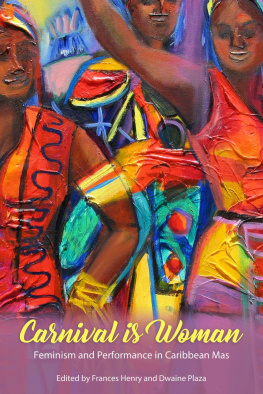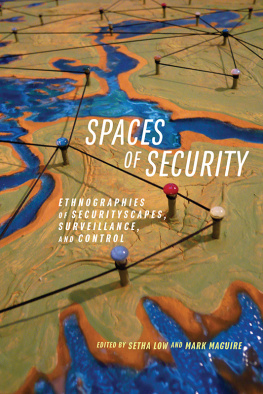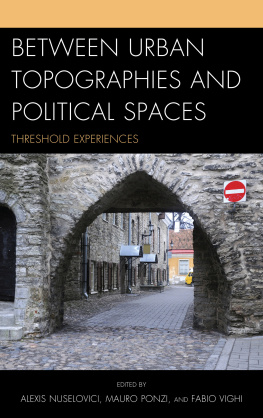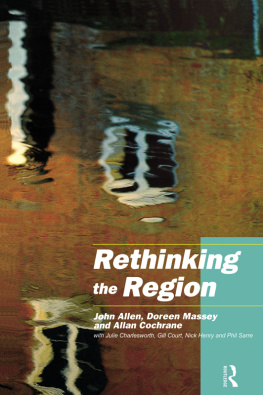Carnival Art, Culture and Politics
Drawing on rich insights from cultural, post-structural and post-colonial studies, this book unlike any other, demands that we re-think Carnival and the carnivalesque as not just celebratory moments or even as critical subtext, but also as insightful performatives of social life anywhere, given the entangled times and spaces of these performances. The authors review Carnivals performative aspects not merely as a calendrical festival, but rather center attention on the relationship between carnival and everyday life, and on how people negotiate their social spaces and possibilities in the context of modern power. The book therefore seeks to highlight the knotted time-spaces of power and to demonstrate the dynamic interplay between state spaces and peoples spaces that are being weaved by carnivals interlocutors. It demonstrates how Carnival and the carnivalesque become analytic optics through which the relations of power in the social and political life of subjects who seek to tactically or strategically vary their given identities, can be productively engaged.
This book was originally published as a special issue of Social Identities: Journal for the Study of Race, Nation and Culture.
Michaeline A. Crichlow is a Professor of Sociology and Global Caribbean Studies, teaches in the African and African American Studies department at Duke University, USA, and is the author of Globalization and the Post-Creole Imagination: Notes on Fleeing the Plantation (2009) and Negotiating Caribbean Freedom: Peasants and the State in Development (2005). She has written and published on informality, creolization and development in several journals and edited volumes, and is currently researching for book projects on citizenship and migration and the question of place and space.
First published 2012
by Routledge
2 Park Square, Milton Park, Abingdon, Oxon, OX14 4RN
Simultaneously published in the USA and Canada
by Routledge
711 Third Avenue, New York, NY 10017
Routledge is an imprint of the Taylor & Francis Group, an informa business
2012 Taylor & Francis
This book is a reproduction of Social Identities: Journal for the Study of Race, Nation and Culture, volume 16/issue 4. The Publisher requests to those authors who may be citing this book to state, also, the bibliographical details of the special issue on which the book was based.
All rights reserved. No part of this book may be reprinted or reproduced or utilised in any form or by any electronic, mechanical, or other means, now known or hereafter invented, including photocopying and recording, or in any information storage or retrieval system, without permission in writing from the publishers.
Trademark notice: Product or corporate names may be trademarks or registered trademarks, and are used only for identification and explanation without intent to infringe.
British Library Cataloguing in Publication Data
A catalogue record for this book is available from the British Library
ISBN13: 978-0-415-69276-2
Typeset in Times New Roman
by Taylor & Francis Books
Publishers Note
The publisher would like to make readers aware that the chapters in this book may be referred to as articles as they are identical to the articles published in the special issue. The publisher accepts responsibility for any inconsistencies that may have arisen in the course of preparing this volume for print.
Michaeline A. Crichlowa and Piers Armstrongb
aDepartments of African and African American Studies & Sociology, Duke University, Durham, North Carolina; bLatin American Institute, University of California, Los Angeles; Modern Languages and Literatures, California State University, Los Angeles
Somo crioulo doido e somo bem legal
Temos cabelo duro s no black pau
Que bloco esse? Eu quero saber.
o mundo negro que viemos mostrar pra voc.
Branco, se voc soubesse o valor que o preto tem,
Tu tomavas banho de piche, branco e, ficava negro tambm.
E no te ensino a minha malandragem
Nem to pouco minha filosofia, no
We be crazy Creole and we be very cool
We have kinky hair and we just go in Black Pow
What carnival club is this? I want to know.
Its the black world that we came to show you
Whitey, if you knew the value of the Black man,
Youd bathe yourself in tar and become a Black man too
And Im not gonna teach you my artful dodging
or my philosophy either, no. (Que Bloco Esse, Paulinho Camafeu)
A multidisciplinary symposium on carnivals and the carnivalesque
In the summer of 2005, 11 scholars who had studied and participated in carnival and carnivalesque moments, gathered at the Obermann Center for Advanced Studies at the University of Iowa in Iowa City for a colloquium on carnival. Their respective core disciplines included sociology, anthropology, history, folklore, visual arts, theatre, performance, and foreign languages and literatures. The carnivals they studied were predominantly of the Americas (with a Caribbean cluster of Trinidad and Tobago, Cuba and New Orleans, and an Eastern South American cluster of Brazil, Argentina and Uruguay) but also included France, the Trinidadian-derived Notting Hill carnival in London, a carnival-like Catholic festivity in the Philippines, and on the carnivalesque front a G-8 protest in Scotland and well-humoured coal industry protests in West Virginia. All used interdisciplinary perspectives and methods in their work, and the colloquium fostered exchanges of a comparative nature regarding both instances of carnival and its disciplinary frames. The conceptual orientation deriving from the profile of case studies examined, meant combining a focus on post-colonial issues of emancipation with aesthetic performatives and the expression of personal fantasies. We sought to explore carnival beyond its traditional festive sites, and to rethink it, less through overarching binaries such as Western/non-Western or domination/subordination, and more in terms of its cultural flows, hybridities, negotiation, dialogics, and unintended consequences.
An inclination to rely on binaristic notions in earlier carnival literature, particularly within Marxist and certain ethnographic studies, tended to underscore the grotesque anomalies in a visual politics of presence or place. But the cultural turn in social studies, with its emphasis on translation, negotiation, constructions of subjectivities, and on liminality, allows more for a perspective of open-ended transformations and relational histories, and hence a stress upon the contingent, provisional formation of social spaces, subjectivities and temporalities. This views value has been enhanced with the recent overflow of certain carnivals beyond their historical sites and temporal constraints. The essays in this volume offer then to rethink carnivals and the carnivalesque principally in terms of its movements, boundary crossings, convivialities, creative bricolage and fantasies, which are maneuvers open to anyone state elites, folk and visitors, players and observers.








